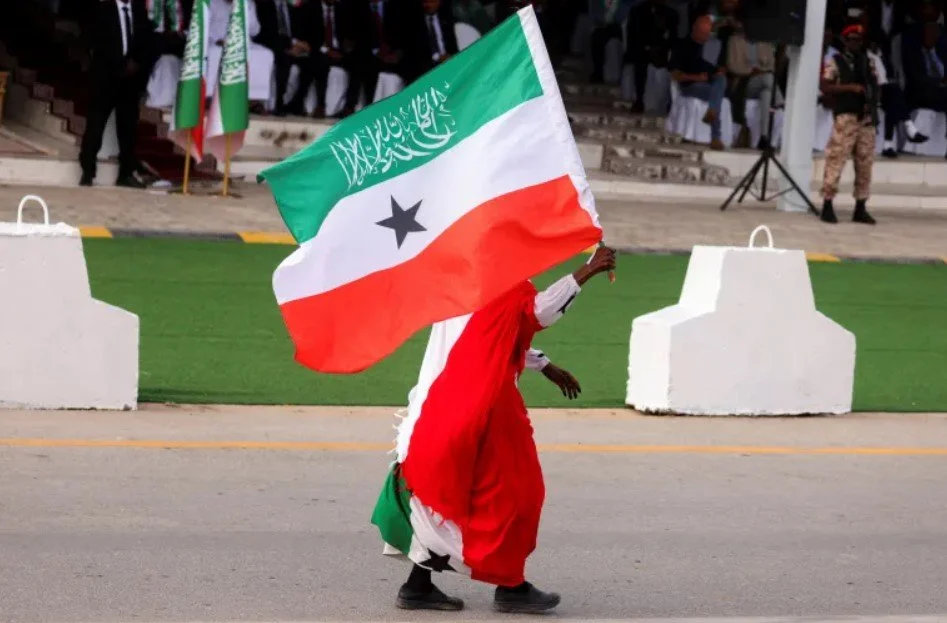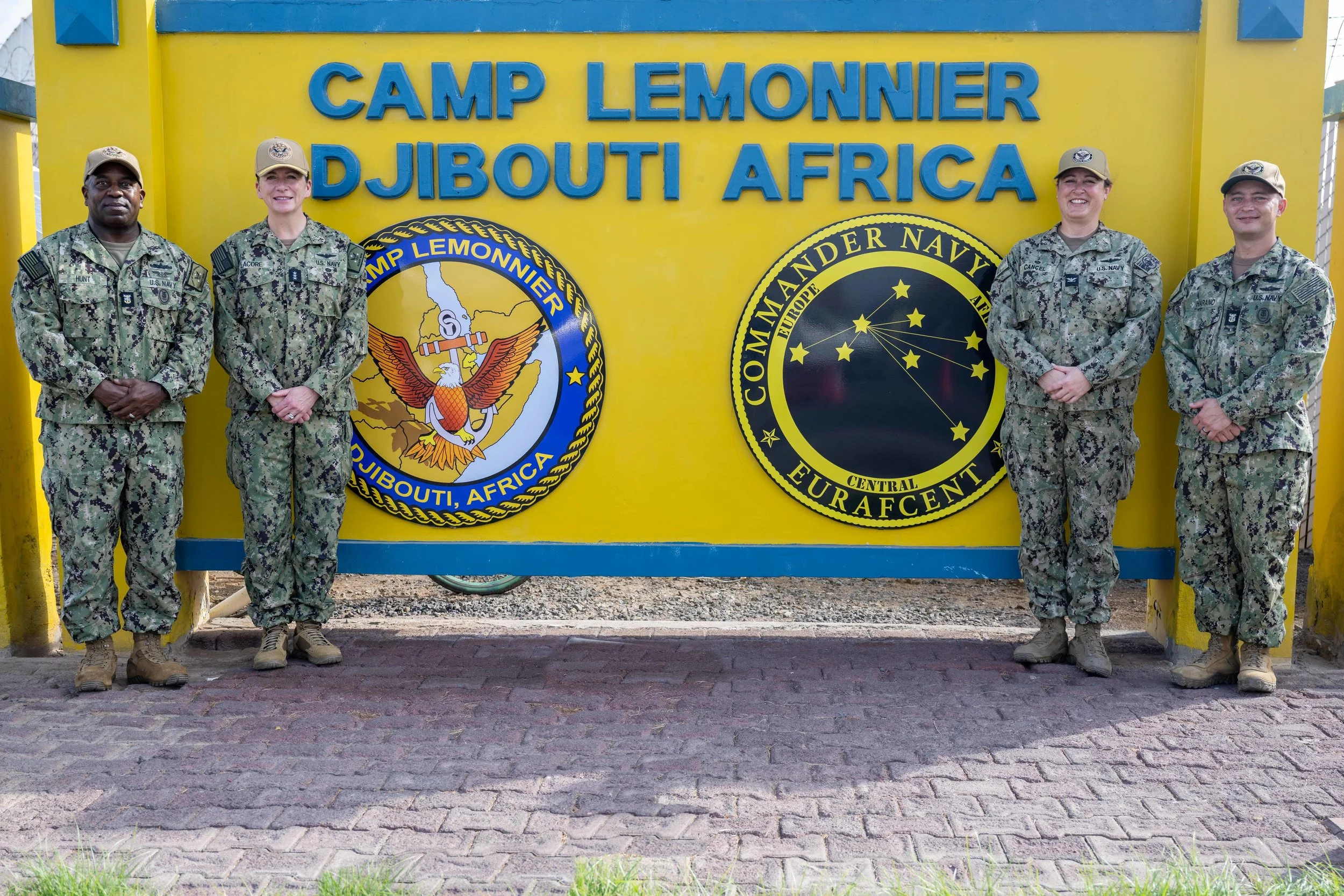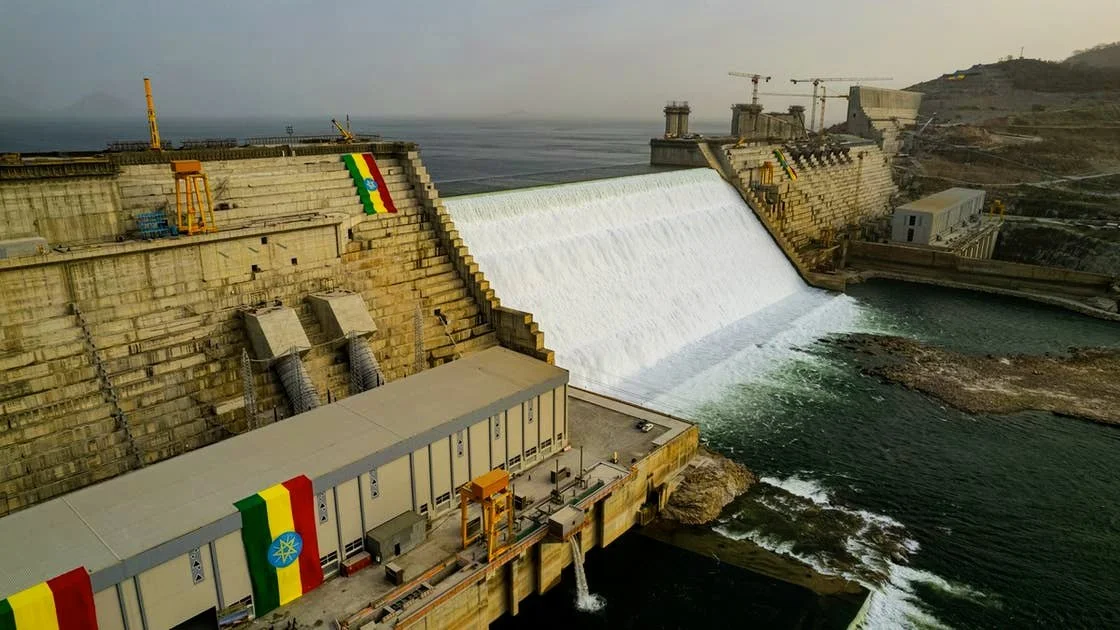U.S. Recognition of Somaliland – Would it be Beneficial?
October 04, 2025 - Written by Max Savochkin
Introduction
Somaliland is a de facto independent state in the Horn of Africa. Originally a British protectorate, Somaliland has been legally recognised as part of the Federal Republic of Somalia since 1960 by the international community when it gained independence and united with Italian Somaliland to form Somalia. In 1991, amidst worsening relations with Mogadishu, Somaliland declared independence, a status it enjoys in practice today. However, despite the current reality on the ground, not a single UN member officially recognises Somaliland’s sovereignty. Now, the Somaliland government in Hargeisa is attempting to establish diplomatic relations with other nations, seeking to stabilise its security and to improve its access to international funding and investment.
Since the second Trump administration has been in the White House, the U.S. has been more open to the possibility of recognising Somaliland’s sovereignty. Trump administration insiders have made overtures to the Somaliland Government, and several Republican senators, such as Ted Cruz, have voiced their support of this recognition.
Whilst some of the benefits that this report elaborates on are only reliant on the United States recognising Somaliland’s sovereignty, other benefits would require wider recognition by the international community. In the case of U.S. recognition, U.S. aligned countries may likely follow suit, as happened in the case of Kosovo, one of the best examples of a country unilaterally declaring independence and obtaining significant international recognition in the 21st century.
Benefits of Recognising Somaliland’s Sovereignty for the U.S.
Military Benefits
One reason recognising Somaliland’s sovereignty is appealing to the U.S. is location. Somaliland and its main port, Berbera, lie just across the Gulf of Aden from Houthi-controlled Yemen - a location perfectly situated to an additional U.S. base in the region. The U.S. Military are keen for an alternative to its main African base, Camp Lemonnier in Djibouti. Djibouti is already home to multiple military bases belonging to 5 different countries, including a base operated by China. This limits the ability of the U.S. to expand its operations as needed and leaves the U.S. overly reliant on one regional partner. The Djibouti base lease has nine more years and Djibouti has become increasingly close with China and indebted to them (amounting to about 45% of its GDP in 2023). On the flip side, Somaliland has drawn the ire of Beijing by establishing informal relations with Taiwan. There is concern from some quarters of the U.S. security establishment that Djibouti’s debt gives China the upper hand in the strategic battle for influence in the Red Sea and Horn of Africa. Having a U.S. military base in Somaliland would mitigate the current risk of sole reliance on Djibouti for its regional operations, which include helping the Somali and Puntland Governments with strikes on ISIS and Al-Shabaab.
As well as being aligned with the U.S. in relation to its current China policy, Somaliland is also a fledgling democracy. It’s the only country in the Horn of Africa ranked as ‘Partly Free’ by Freedom House, and Somaliland had the encouraging development of a peaceful transfer of power after the last election in 2024. The U.S. recognition of Somaliland would signal to other countries in the region that efforts to establish free and democratic systems of governance align with purported American values and does come with benefits. This is more important than ever, as U.S. allies are starting to question the value of their relationship with the U.S., especially in light of Trump’s new positions on the U.S.’s longstanding policies regarding the UN, NATO and security in Europe and Ukraine.
Economic Benefits
Another benefit to the U.S. would be the extraction of minerals and natural resources within Somaliland. Somaliland has largely untapped deposits of various valuable minerals, such as tin. The U.S. has no domestic tin production and no economically viable tin deposits within their borders; therefore, the U.S. can secure reliable tin imports. Tin is crucial to circuit board production, and to semiconductor and battery production. The International Tin Association (ITA) is predicting a global supply shortfall of over 10,000 tonnes of tin by 2030, with a large amount of the world’s tin coming from geopolitically unstable countries such as Myanmar. The U.S. Government is encouraging domestic semiconductor & battery manufacturing. This alliance with Somaliland could be a useful opportunity to shore up international supply chain issues that the U.S. may encounter in the years to come. The Somaliland Government has already signalled it would be willing to negotiate a deal that would give U.S. companies preferential mining rights.
Benefits for Somaliland
Economic Benefits
Economically, a U.S. partnership would be hugely beneficial, as Somaliland would have access to financial tools that have hitherto been unavailable to them. Presently, Somaliland is ineligible to receive loans from the IMF or the World Bank, due to its lack of international recognition. This makes attracting investment for much needed infrastructure more difficult. For example, only 15% of Somaliland’s populace has access to electricity and this figure is even lower outside of the cities of Hargeisa and Berbera. Informal relations with the UK and the UAE have already funded some infrastructure projects within Somaliland. These informal relations have shown that Somaliland could become economically prosperous with the right international investment. DP World, the state-owned Emirati logistics company, is investing $442 million in the port of Berbera. This investment is part of a wider project, the so-called ‘Berbera corridor’, a major trade and transport link connecting the Port of Berbera in Somaliland with the landlocked Ethiopian city of Addis Ababa. This corridor will be crucial to Somaliland’s economic growth as it is projected to facilitate 35% of Ethiopia’s trade volume by 2035, providing 53,000 jobs for Somaliland. As part of this initiative, the UK has funded the Hargeisa bypass, which has reduced travel times through the corridor by 38%.
The leadership of Somaliland are embracing a very pro-business regulatory environment (the country now has its first-ever VC-backed tech start-up), but there remain many practical barriers that prevent foreign direct investment (FDI). U.S. recognition would go some way to alleviating these barriers. For example, American investors are hesitant to invest in an internationally unrecognised country, where there is a dearth of consular assistance and investment protection. An ongoing somewhat unstable security situation, especially in the east of Somaliland is also a concern for international investors. Establishment of diplomatic relations and a security agreement would alleviate some of these concerns.
Another issue is Somaliland’s relatively limited financial infrastructure. 15 years ago, Somaliland had no central bank or banks of any kind. Today, the Bank of Somaliland operates as the central bank and there are five fully-fledged commercial banks in operation. Despite this advancement, the domestic financial regulatory framework remains limited. Somaliland’s banks are not connected to SWIFT; there are no reliable credit information sharing systems in place, and there’s little-to-no integration into the digital global financial system. These are all factors that diplomatic recognition would help in solving. The Somaliland Government is already trying to address some of these issues through bilateral engagements with countries such as Kenya and Taiwan.
Security Benefits
It is unlikely that the U.S. would include a security guarantee with any trade deal with Somaliland (the U.S. does not have a single security guarantee with any country in the Middle East or Africa – outside of its NATO obligations to Turkey). But the mere presence of a U.S. base and recognition of Somaliland sovereignty would likely create a deterrent to potential military action from the Somali Government or clan leaders, that currently hold control of land in Eastern Somaliland. These security deterrents have historically led countries hosting U.S. forces to benefit from an increase in FDI and trade.
Reasons to be Cautious of U.S. Recognition
US-Egyptian Relations
There are numerous reasons for Washington to be cautious about recognising Somaliland. A consideration is the consternation it may cause within the Egyptian Government. Egypt’s desire to curb Ethiopia’s growing influence and their frustration at the way Ethiopia handled the building of the Grand Ethiopian Renaissance Dam have led to a tighter alignment with the current Somali Government. Egypt is also upset with the Ethiopia–Somaliland deal agreed last year. This deal gives Ethiopia ocean access through the port of Berbera and the Berbera corridor, which in turn poses a threat to Egyptian dominance in the Red Sea. The fragmentation of Somalia, a country that traditionally is posed as a counterbalance to Ethiopian expansion, is not a desirable situation for Cairo. Egypt has been using its leverage in both the African Union and the Arab League to encourage a diplomatic blockade on the recognition of Somaliland.
Considering the above, the U.S. recognition of Somaliland’s independence may, unsurprisingly, trigger a sense of unease within President Sisi’s administration. The U.S.-Egypt relationship is already under strain due to the ongoing war in Gaza, as well as from other proposals Trump has suggested.
These include previous ideas from the current U.S. administration for the proposed wholesale relocation of native Palestinian civilians to the Sinai Peninsula within Egypt, which Trump has since backtracked on. Egypt’s support is crucial for reaching a lasting settlement in the Middle East.
Cairo may be willing to tacitly accept a U.S. deal with Somaliland, and it could be argued that it may be in Egypt’s interests to do so. If Egypt’s coercive diplomacy gamble fails to pay off and Somaliland continues to expand relationships with countries like the UAE, Egypt may find its influence in the Horn of Africa reduced. Were the U.S to recognise Somaliland’s independence and Egypt objected, Egypt could quickly find itself with a firm Ethiopian ally in the region. An Ethiopian ally with a U.S. military base on its territory and access to various international markets and global infrastructure that it doesn’t currently enjoy.
From Washington’s perspective, the U.S.-Egyptian relationship is still important, even if that relationship has slipped below the relationships with other Gulf states in priority. Handled with nuance and sensitivity, however, there would most certainly be a path to Somaliland recognition that Egypt would accept.
Grand Ethiopian Renaissance Dam
The Fragmentation of Somalia
A hesitation from the global community in recognising Somaliland is the fear that Somalia will fragment into several smaller, sovereign states. This would be antithetical to the ‘One Somalia’ policy that the U.S. has had until now. This policy is predicated on the idea that the best way to combat Al-Shabaab (a Somali terrorist group) and protect U.S. military interests in the region is with a federal Government in Mogadishu controlling a united Somalia. Many members of the international community fear a break from the ‘One Somalia’ policy would lead to widespread clan-based clashes.
This fear that Somalia may fragment into several smaller states is not without foundation. The unity of Somalia’s federal union of states outside of Somaliland is already precarious. Last year, the Somali Federal Government introduced a new constitution, sparking a constitutional crisis. Following the establishment of this new constitution, the states of Puntland and Jubaland declared their intention to run their own affairs outside of the established federal system. In a situation where the U.S. recognises Somaliland’s sovereignty, it is possible that this existing constitutional crisis could be further inflamed.
However, official U.S. recognition of Somaliland need not necessarily lead to the fragmentation of Somalia. Whilst Puntland and Jubaland are in dispute with the central Somali Government, both have stated their desire to remain part of the Somali federal system. This is a key difference between states such as Puntland, and the Government of Somaliland. It is possible and indeed desirable for the U.S. to accompany any deal with Somaliland with a renewed effort to reach a political solution in Somalia. An increase in funding to support the Somali Government’s attempts to combat Al-Shabaab would also be welcome.
Conclusion
In conclusion, the U.S. recognition of Somaliland would be beneficial to both parties. The U.S. gains military and geopolitical advantages and Somaliland benefits in both security and economic spheres. In practice, Somaliland territory is unlikely to ever be part of Somalia. In fact, it has spent more time separated from Somalia than it was as a de facto part of the federation. Concerns about the fragmentation of Somalia are not without foundation. So, in that spirit, a pathway to recognition, taking into account regional concerns about such a move, would be the best way forward. This would also have the benefit of showing American allies that official recognition will not have the destabilising effect they anticipate and could open the floodgates to wider recognition by the global community.
Written by Max Savochkin
Contributing analyst for Geopol Report





